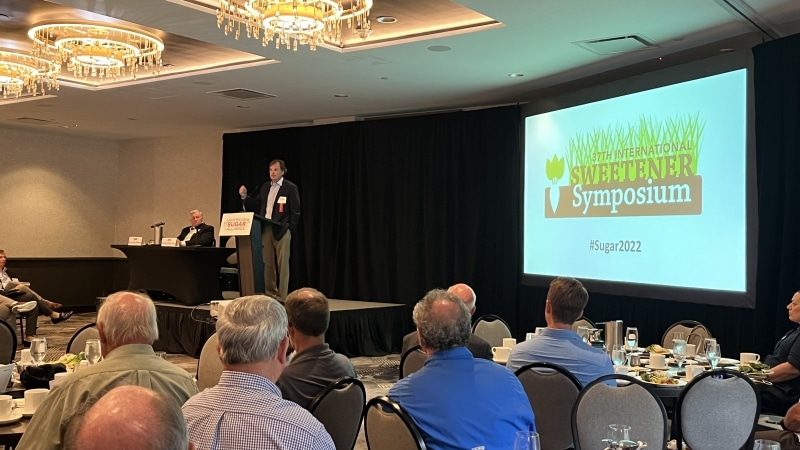USDA Under Secretary: Opportunity for U.S. Agriculture to be Hero on Climate Change
America’s farmers have an opportunity to be “a real hero in our ability to address climate change” through improvements in productivity and climate-smart practices, but a successful climate program “has to work for agriculture.”
That was the message shared by Robert Bonnie, Under Secretary for Farm Production and Conservation (FPAC) for the U.S. Department of Agriculture (USDA), at the 37th International Sweetener Symposium yesterday.
Bonnie outlined USDA’s approach to addressing climate change through building broad, collaborative partnerships across agriculture.
“There’s so much diversity in agriculture,” Bonnie said, “that the approach to climate change can’t be one that dictates practices for low and high. It has to be modern. It has to be producer-led. It has to allow farmers, ranchers, and forest landowners to choose which practices work best for them, and then provides incentives for them to do that.”
Initiatives to reduce greenhouse gas emissions must recognize the critical role American farmers play in producing a global supply of food and fiber.
“We have to reduce emissions even while we maintain and enhance productivity. We’ve got to feed 9.5 plus billion people in the world by the middle of the century,” Bonnie explained. “U.S. agriculture is really good at productivity, and it’s really good at efficiency. That’s why I’m optimistic about the ability of U.S. farmers and U.S. forest land owners to be able to address climate change.”
Thanks in part to strong federal farm policies, U.S. sugarcane and sugarbeet farmers continually invest in new research, technologies, and techniques to boost efficiency and protect our planet. U.S. sugar farmers produce 16 percent more sugar today on 11 percent less land compared to 20 years ago – and they’ve increased yield per acre by 30 percent while using fewer inputs.
U.S. sugar producers continue to expand on this work and, as part of the Food and Agriculture Climate Alliance (FACA), support voluntary and incentive-based conservation programs that promote resilience in rural communities.
Uncertainty in the farm economy has presented new risks for U.S. sugar producers. In addition to farm and trade policies that help level the global playing field, U.S. sugar farmers and workers need the Farm Bill to provide a strong safety net and affordable risk management tools.
Bonnie emphasized the importance of crop insurance as a risk management tool, saying, “crop insurance is critically important for so many folks in agriculture.” He noted that there are ways to increase crop insurance accessibility while improving the products available to farmers.
U.S. sugar producers are committed to a more sustainable future. A strong Farm Bill that preserves sound U.S. sugar policy and addresses the increased challenges facing farm producers will further this mission while protecting U.S. food production, preserving good American jobs, and supporting the local communities who rely on a vibrant U.S. sugar industry.



